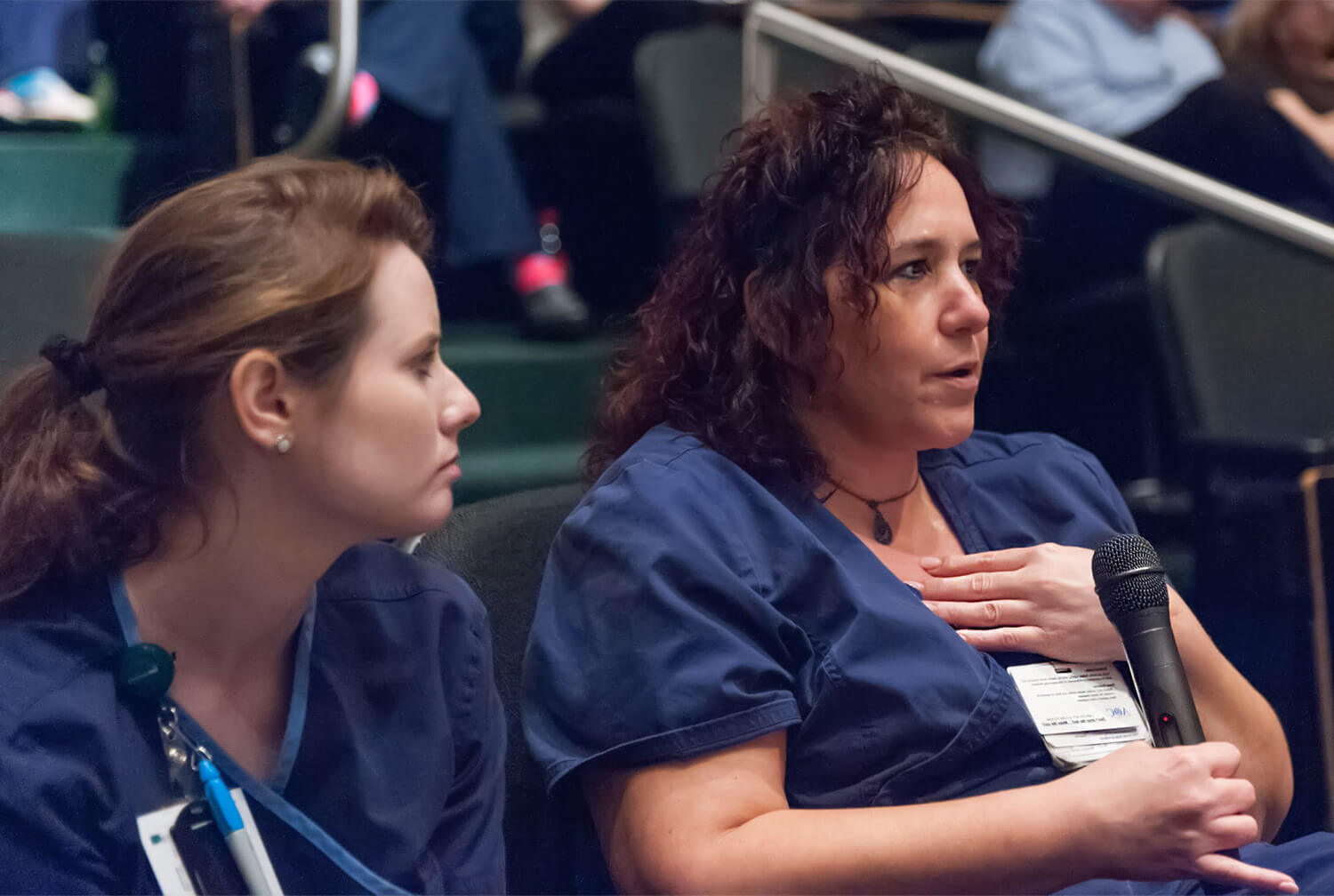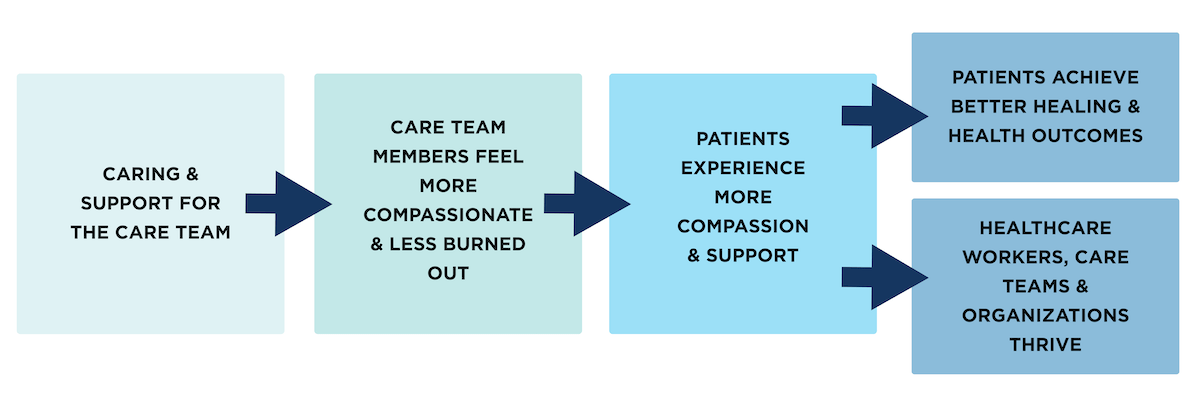
The Schwartz Rounds® Program
The Schwartz Rounds program creates dedicated space for healthcare workers to discuss the emotional dimensions of their work—both the challenges and the joys. Research shows this practice strengthens compassion and enhances patient care.
Led by Schwartz Center-trained local facilitators, each session centers on a compelling theme or patient story. These gatherings create open, reflective spaces where clinical and nonclinical staff share experiences and build meaningful connections through dialogue.
Nearly 800 healthcare organizations around the world run the Schwartz Rounds program.
If your organization is interested in joining our healthcare community, please complete the brief inquiry form and a Schwartz Center staff member will get back to you with next steps.


Schwartz Rounds participants report:
88%
better confidence in attending to patients' emotional needs
85%
increased empathy towards patients
82%
provided more compassionate care
Benefits of the Schwartz Rounds Program
More than 100 research studies on the program have shown significant benefits:
Compassion Matters
We know that compassionate healthcare is not just ethically right but economically sound. Research shows that compassionate care leads to:

Schwartz Rounds Program Adaptations
Schwartz Rounds Program
Comprehensive program implementation including staff training led by experienced Schwartz Center program experts, ongoing mentorship, and resources to launch and sustain the Schwartz Rounds program in your healthcare organization
Virtual & Hybrid Schwartz Rounds Programs
Specialized training, support, and tailored resources for hosting meaningful online and hybrid Schwartz Rounds sessions
Team-Based Schwartz Rounds Program
Customized implementation support designed specifically for individual departments, units, or specialized healthcare teams seeking targeted emotional wellness programming
Workshops & Advanced Trainings – Virtual interactive skill-building sessions led by Schwartz Center experts, combining hands-on practice with real-time coaching to elevate facilitation capabilities.
Community Connections – Ongoing monthly virtual opportunities for program leaders around the world to connect, collaborate, and learn from each other and Schwartz Center staff about Schwartz Center program implementation and other efforts to advance compassion.
Compassion in Action Webinar Series – Opportunities to learn about topics related to compassionate, collaborative care from leading practitioners and researchers in the field.
Expert Trainings – Special pricing for tailored on-site or virtual talks and trainings on topics such as burnout, compassionate communication, hiring for compassion and more.
Stress First Aid Basics Training Program – Access to our online training that introduces the core concepts of Stress First Aid for healthcare workers, which identifies and mitigates the negative impacts of stress before they impair staff health and well-being.
Compassion Cultivation Training© (CCT™) for Healthcare Workers – Discounted access to our online course that integrates evidence-based meditation techniques, interactive discussions, and lectures. Attendees use real-world exercises to put learning into practice, and draw insights and techniques from psychology, neuroscience, and contemplative practice.
Getting Started with the Schwartz Rounds Program
If your organization is interested in joining the nearly 800 sites around the world in our healthcare community, please complete the brief inquiry form and a Schwartz Center staff member will get back to you with next steps.

© 2025 The Schwartz Center. All Rights Reserved.